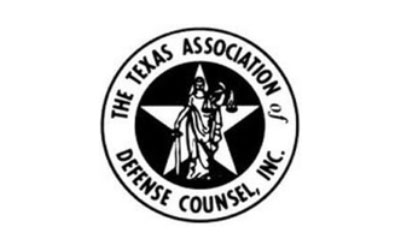Ray Ortiz and Megin Koch successfully defended a State Farm insured in one of the first post-pandemic live trials in Nueces County, Texas. The Defendant was allegedly negligent in colliding with the two Plaintiffs from behind causing personal injuries to each Plaintiff. Testifying live were Plaintiffs’ treating chiropractor as well as an accident reconstruction expert who testified for the defense. The Corpus Christi Police Officer who investigated the accident testified by video. Plaintiffs argued for damages in excess of $200,000. After the close of evidence, the jury returned a swift unanimous verdict finding no negligence on the part of the Defendant. Nueces County Court at Law #2 Judge Lisa Gonzalez presided over the trial.
Attorney and Shareholder, Ray Ortiz, Recognized by the American Cleft Palate-Craniofacial Association
Congratulations to Ray Ortiz and Chelsea Ortiz, founders of CleftStrong, for recently being recognized by the American Cleft Palate-Craniofacial Association (ACPA) for their extraordinary contribution in raising awareness for people with cleft and craniofacial conditions. CleftStrong hosted its Fifth Annual Family Fun 5k in San Antonio, Texas to spread awareness and raise funds for the ACPA. In total, CleftStrong raised $25,100.00 for the ACPA in 2018. We are proud to announce Mr. and Mrs. Ortiz’s recognition and look forward to their continued success in 2019.
The Twelfth Court of Appeals in Texas provides (some) clarification on Texas Civil Practice & Remedies Code Section 18.001 and Controverting Affidavits
Section 18.001 is meant to streamline trials and create a more efficient way for parties to prove up the reasonableness and necessity of their economic damages. In the personal injury context, this often results in Plaintiffs serving 18.001 billing affidavits from their healthcare providers, in which the custodian of records attests that the services provided were necessary and the amount charged for the services was reasonable at the time and place that the services were provided.
After being served, defendants must determine within 30 days (or otherwise must request leave of the court) whether or not they wish to controvert those affidavits and preserve their ability to attack the reasonableness and/or necessity of the treatment at trial. If the defendant chooses to controvert those affidavits, then that affidavit must contain “reasonable notice” on the basis it intends to controvert the claims in the initial affidavit and it must be made by a person “qualified, by knowledge, skill, experience, training, education, or other expertise.”
A defendant may elect to retain a coding/billing expert to create a controverting affidavit only as it relates to the reasonableness of cost. In those affidavits, the coding/billing expert will simply go through the itemized charges contained in the initial affidavit and identify which charges are unreasonable at the time and place the services were provided. This provides defendants with a quick and efficient alternative to being forced to prematurely determine the need to retain a medical expert. More often than not, those controverting cost affidavits are quickly met with a motion to strike attacking the qualifications of the coding/billing expert and the reliability of those opinions. Until recently, there has been little guidance from the appellate courts on this issue and rulings on those motions were often sporadic and inconsistent.
On March 5, 2019, in a mandamus proceeding, the Twelfth Court of Appeals addressed this very issue in In re Brown, No. 12-18-00295-CV, 2019 WL 1032458, (Tex. App. – Tyler March 5, 2019). There, respondent was injured as a result of a motor vehicle accident and filed numerous affidavits regarding the reasonableness and necessity of medical treatment in accordance with Section 18.001 of the Civil Practice & Remedies Code. Relator served a controverting affidavit from a nurse attacking only the reasonableness of the costs contained in Respondent’s affidavits. Respondent then filed a motion to strike on multiple grounds, including that the nurse was not qualified and her opinions lacked a reliable foundation or factual basis. The trial court granted the motion to strike.
The court of appeals found that the order striking the controverting affidavit was an abuse of discretion, conditionally granted Relators’ petition for writ of mandamus, and directed the trial court to vacate its order striking the counter-affidavit. In arriving at that decision, the court first reviewed the qualifications of the nurse by analyzing her curriculum vitae, which was attached to her controverting affidavit. The nurse has been a licensed nurse since 1995 and has worked case management and claim analyses for insurance companies since 1999. This experience resulted in her becoming familiar with medical coding and billing practices.
The court addressed a recent Supreme Court decision in Gunn v. McCoy, 554 S.W.3d 645 (Tex. 2018), in which the Supreme Court held that insurance subrogation agents are qualified to use their databases to create affidavits and “the plain language of section 18.001(c)(2)(B) does not require that the affidavits be made by a records custodian for a medical provider.” Id. at 672. Here, while applying the Supreme Court’s reasoning, the court also found that the nurse was entitled to rely on her databases on medical costs when opining which charges were unreasonable. As such, the court concluded that the nurse was qualified and that her opinions were reliable.
The court of appeals found that mandamus relief was proper since, if affidavits are excluded and left uncontroverted, section 18.001 prevents Relators from presenting evidence to the jury about the reasonableness or necessity of the Respondent’s medical expenses. Since Relators would be prohibited from presenting evidence negating the Respondent’s damages, the court felt that exclusion of the controverting affidavit would be a harmful error and result in an irreversible waste of resources. This opinion, although not a Texas Supreme Court opinion, will be useful in defending against plaintiffs’ motion to strike controverting affidavits.
ABA Journal Reports Federal Judiciary Funding Situation in Lieu of Government Shutdown
A report by Debra Cassens Weiss at the ABA Journal explains that the federal judiciary will continue to pay employees until around January 25th, 2019. For more details, please see the original report, dated January 16, 2019 at the ABA Journal website ( http://www.abajournal.com/news/article/federal-judiciary-says-the-money-wont-run-out-just-yet.)
Ray Ortiz Awarded 2019 Martindale-Hubbell® AV Preeminent™ Rating
Managing Partner and majority shareholder Ray Ortiz has been designated with the Martindale-Hubbell® AV Preeminent™ rating for 2019. This rating signifies that a large number of peers have ranked Mr. Ortiz at the highest level of professional excellence for his legal knowledge, communication skills and ethical standards. We congratulate Ray for his excellent work!
Another Victory for Ortiz & Law in Defending UIM Carrier
Jonathan Law and Dylan McDonald obtain another take nothing judgment in an underinsured motorist lawsuit pending in the 407th Judicial District Court of Bexar County, Texas. Prior to the trial, the primary plaintiff settled his claim with the underlying tortfeasor for the policy limits of $50,000.00 and sought the limits of the applicable State Farm underinsured policy at trial for pain and suffering, mental anguish, disfigurement, and physical impairment in the past and future as well as a claim for past and future loss of consortium by his wife.
After a 3-day trial with the honorable Judge John Gabriel presiding, on October 10, 2018, the jury returned a verdict of $55,000.00, which resulted in a take nothing judgment on behalf of State Farm Mutual Automobile Insurance Company after a credit was applied for the tortfeasor’s policy limits and the additional policy benefits that had been paid.



